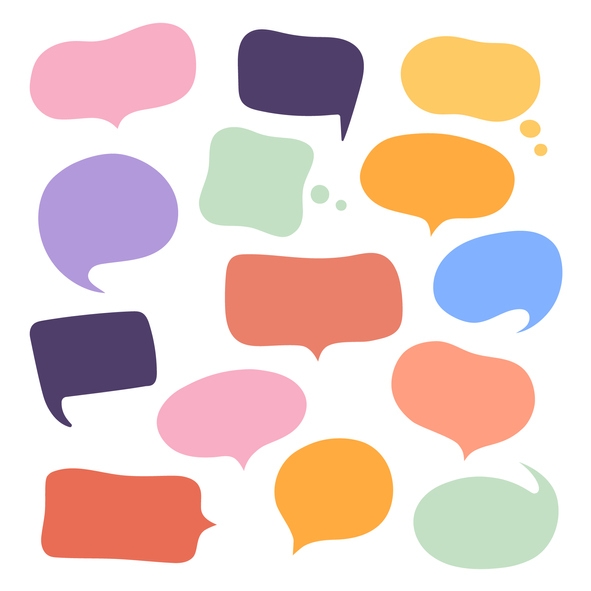You have /5 articles left.
Sign up for a free account or log in.

petro bevz/istock via getty images
Those of us who have or are seeking doctoral degrees are experts in our fields. While we are (hopefully) trained to communicate with our colleagues through giving talks, writing papers and the like, we often receive less training on interacting with the public. For many of us, however, such experiences will present themselves throughout our careers -- from the family dinner table to a child’s classroom to the local radio station or a national television broadcast.
I view these encounters as opportunities to share, connect, educate and bolster your career. That said, public engagement can also be challenging on many levels. How do you decide whether to engage? To some extent, this is a time-management question, but it is a topic that many of us encounter in our careers, so it warrants some specific consideration.
I started learning how to discuss my work early in my career. My Ph.D. is in microbiology, and I studied viruses in graduate school; my relatives frequently had questions about infectious diseases and public health. I also did K-12 outreach. After graduate school, I completed a fellowship in science policy, where I had ample opportunities to talk about science with people from diverse backgrounds.
To be honest, when I accepted my current position, I thought the days of talking science were probably over. However, I now serve on my institution’s COVID-19 task force and have answered many questions about the virus for family and friends. I also have my Ph.D. career development side, and I regularly receive requests for informational interviews from those outside my organization. I have found that engaging with the public further strengthens my expertise since teaching someone requires me to know my subject matter and be able to explain it well. To determine which opportunities to pursue, I take a four-step approach by accessing my qualifications, interest and availability, as well as the impact on my mental health.
First, I determine if I am qualified to engage. Can I answer the question, provide advice or make a meaningful contribution? I am careful not to overstep: if I am not qualified, when possible, I recommend a person or place where the requestor might find more information. Lately, I have received COVID-19-related questions from family members. While I can answer many, I also have a few resources handy for the times when I can’t answer their questions
If you find it difficult to recognize your own expertise, you are in good company. I suggest jotting down a few topics on which you feel comfortable speaking with others. Those topics may or may not have to do with your research or academic area of expertise. Are there any subjects you would like to discuss but with which you do not yet feel comfortable? If so, then you should research options for gaining more experience. Your institution and professional society are both good places to start, although there are many others. For example, the American Society for Biochemistry and Molecular Biology offers the Art of Science Communication course. It also may help to consult a trusted friend, colleague or mentor who can provide you with an unbiased view of your expertise.
My second step is to decide if I want to or feel I should engage. Am I interested in the request? Am I obligated in some way? Will the experience further my career? The answers to these questions are personal. I love doing informational interviews with graduate students and postdoctoral fellows. When I was a graduate student, people gave me their time, so conducting interviews is a way that I can thank them indirectly for their kindness.
You may want to engage because it will bolster your career. For example, attending a donor event could lead to you receiving additional research funding, and giving a talk at a community organization will further your connections and network. It can sometimes be difficult to determine which outreach experiences are valuable for your career, though. Try to think a few steps ahead. What might be some potential outcomes from engaging? Would these outcomes help or harm your career? This is another instance in which a trusted friend, colleague or mentor might be able to offer guidance.
Life is busier than ever during the pandemic, which leads me to my third consideration. Do I have time to engage? As with most people, I wear many hats. In addition to my day job, I am a wife, mother and daughter. I used to have plenty of free time, but that is no longer the case, so when I add something extra, it usually means taking time from something else. When I receive requests with which I would like to engage, I try to ask myself whether it is important enough to me to take this time.
I say “try,” because we all know this is easier said than done. For example, when I do informational interviews, it is usually at night after my son has gone to bed. That may mean I lose my normal book-reading time, however. Since I love doing informational interviews, it is usually worth it to me. That said, I do not receive that many requests, and I would not say yes if it meant giving up my reading time every evening. It requires a balance, and again, that is a personal decision. It can help to weigh the potential outcomes against the time spent, too.
My last recommendation is a more recent addition. I now ask myself if engaging will positively or negatively impact my mental health. When the pandemic started, I spent hours in a chat with a friend of a friend on Facebook. What started out as trying to help my friend turned into a long, difficult, time-consuming conversation with another person. I did not realize it until it was over, but the conversation was detrimental to me. I left feeling defeated and sad. The energy I gave to this interaction drained me, and I realized that I needed to be more protective of my time and energy. While this type of negative experience is going to happen sometimes, I now actively ask myself whether the engagement will be a positive or negative experience for me.
These four questions can be hard to answer, and they will vary by individual and situation. But I hope they will provide you a framework with which to decide to engage in these types of conversations or interactions. Your metrics will continually change over the course of your career. That is normal. I used to say yes to all the speaking engagements I received, but now I scrutinize them more carefully since I have a family. Many young professionals face similar challenges as they take on more responsibilities than they had as graduate students or postdoctoral fellows.
Finally, it is OK to say no. In fact, I can guarantee you that you will have to say it many times in your career. You do not have to provide a reason, and you also are not obligated to provide another option (for example, someone else who can answer a question). But if you can provide alternatives, the requestor usually will thank you for it. Here is a helpful article about saying no.
Engaging with the public can be a very rewarding experience, but it also can be challenging, time-consuming and draining. I encourage you to think actively about whether and how to engage as you progress through your career and hope you find many enjoyable experiences for sharing your expertise with others.








